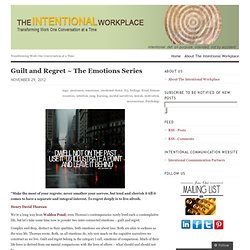

Social Media Can Play a Role in Business Process Management - Mark Pearson. By Mark Pearson | 11:00 AM January 7, 2013 Today, organizations need to be able to execute at the pace of global volatility.

Those that can adapt to trends, preferences and issues ahead of their competitors can create a defensible advantage. But you may not be able to do that unless you can get real-time market data and rapidly align your organization to the new priorities and practices. Too often, old, legacy processes prevent companies from having that agility. Fortunately, social media offers us a chance to improve the communications supporting process improvement. Social tools can make the “process of process management” much more nimble, by delivering information to process participants about improvements needed for operational processes. Social media can also be an excellent tool for bridging the gap between external networking and internal integration. Transparency has long been an ingredient of the success of process-driven organizations.
10 Principles of Change Management. Updated: 10 Principles of Leading Change Management This classic guide to organizational change management best practices has been updated for the current business environment.

To read the newest article, click here. Or, to watch a related video, click on the play button above. Way back when (pick your date), senior executives in large companies had a simple goal for themselves and their organizations: stability. Shareholders wanted little more than predictable earnings growth. Market transparency, labor mobility, global capital flows, and instantaneous communications have blown that comfortable scenario to smithereens. This presents most senior executives with an unfamiliar challenge. Long-term structural transformation has four characteristics: scale (the change affects all or most of the organization), magnitude (it involves significant alterations of the status quo), duration (it lasts for months, if not years), and strategic importance.
The Inconvenient Truth about Change Management_May 08.indd. Change management process - Human Resources. Managing change. The Emotions Series – Guilt and Regret. “Make the most of your regrets; never smother your sorrow, but tend and cherish it till it comes to have a separate and integral interest.

To regret deeply is to live afresh. Henry David Thoreau We’re a long way from Walden Pond; even Thoreau’s contemporaries rarely lived such a contemplative life, but let’s take some time now to ponder two inter-connected emotions – guilt and regret. Complex and deep, distinct in their qualities, both emotions are about loss. Both are akin to sadness as the wise Mr. Guilt Since the 1960’s gave us the term “guilt trip,” guilt’s never been the same. A hundred years ago Freud created an internal iconography about guilt that had previously only been transmitted through religious doctrine. Carl Jung, who Freud once called his “adopted eldest son, crown prince and successor,” (before the rupture in their bond) had a dramatically different concept of the role guilt served in the individuation of the personal psyche. Guilt is a complex social emotion. Regret.